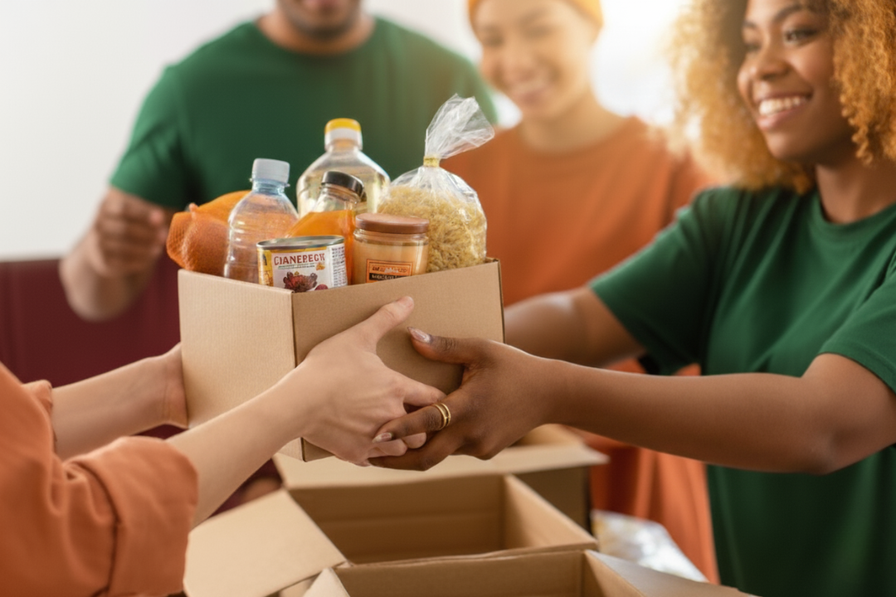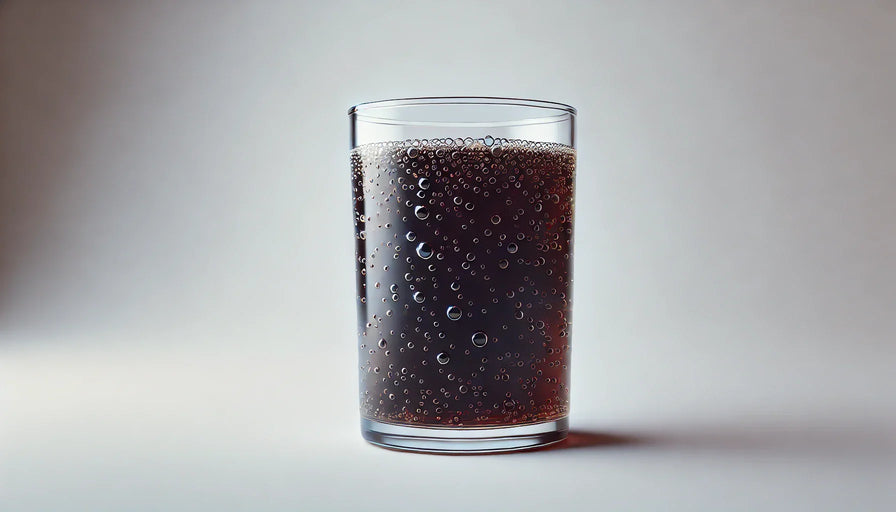
7 Tips on How to Properly Recycle

In an era where sustainability is more than a trend, it's essential that we take every step possible to reduce our carbon footprint. One such stride we can take is by becoming more mindful about our beverage choices and their impact on the environment.
We often overlook that the seemingly innocuous practice of purchasing fizzy drinks contributes to plastic waste. How can we indulge in our favorite sparkling refreshments while staying eco-friendly? The answer might just be in your own home. Let's dive into some effective ways to enhance your recycling efforts.
How to Properly Recycle

Learning how to properly recycle can seem daunting, however, it can be quite simple when you break down the basics:
- Understand Recyclable Materials
- Clean Recyclables
- Sort Waste
- Reuse Before Recycling
- Break Down Boxes
- Purchase Recycled Products
- Use a Home Soda Maker
Now, let's break down each of these further and learn the full scope of how to properly recycle at home.
Learn more about our sustainable Refill Club.1. Understand What Can be Recycled
Knowledge is the first step towards effective recycling. It's important to understand what materials can be recycled and which ones cannot. For instance, paper, glass, plastic, and aluminum cans are generally recyclable.
However, not all plastics can be recycled. Certain items like plastic bags, bubble wrap, and hard-to-recycle plastics (think toys or utensils) are often not accepted by curbside recycling programs. Spend some time researching your local recycling guidelines and educate your family as well about these rules.
2. Clean Your Recyclables
Cleaning your recyclables is crucial to ensure that they actually get recycled. Food residuals on your waste can contaminate the recycling process. Try to rinse out containers, jars, and bottles before tossing them in the bin.
It's also ideal to remove any non-recyclable parts, like the lid or cap, before recycling. This not only ensures that your waste is properly processed but also prevents incidents where small objects can get stuck in recycling machinery, causing disruptions and potentially damaging equipment.
3. Sort Your Waste
Sorting your waste not only makes the recycling process more efficient but also increases the likelihood of your waste being recycled. Separate your waste into different categories - paper, plastics, glass, and metals - and use separate bins for each.
Remember that waste sorting varies from city to city, so always check local guidelines. By sorting your waste, you can also prevent recyclable items from getting contaminated with non-recyclables, which increases the chances of them being rejected for recycling.
4. Reuse Before Recycling
Before you recycle, take a moment to consider if the item could find a new purpose through reuse. For example, repurpose glass jars for storage or use paper bags for wrapping presents. By reusing items, we reduce the demand for new products, which not only minimizes waste but also conserves precious natural resources.
Embracing this creative and environmentally-conscious practice not only saves money but also gives items a second chance at life. So, before tossing something into the recycling bin, pause and explore the potential for giving it a new lease on life.
5. Break Down Boxes
Breaking down boxes saves space in your recycling bin and makes transportation more efficient. This applies to both small packaging boxes and larger cardboard boxes. Remember to remove any non-recyclable elements like tape or bubble wrap before recycling.
If you have a large number of boxes, consider recycling them at your local recycling center instead of the curbside pickup. This is also an excellent opportunity to support local businesses who may offer cardboard and paper recycling services.
6. Purchase Recycled Products
Support the recycling industry by purchasing products made from recycled materials. This helps create a market for recycled products and encourages more businesses to recycle.
Look for the recycling symbol when shopping, and choose products with minimal packaging. By supporting recycled products, you are also reducing the demand for virgin materials and contributing to a more circular economy.
7. Use a Home Soda Maker
Last but not least, consider using a home soda maker like Soda Sense. Not only does this reduce your need for single-use plastic bottles, but our CO2 canisters are also recyclable and intended to be reused and refilled.
Plus, you can enjoy your favorite fizzy beverages guilt-free, knowing you're making a positive impact on the environment. And when it's time to exchange your canister, you can rest easy knowing that we source our CO2 from organic farms within the USA, supporting local businesses while reducing our carbon footprint. It's a win-win for you and the planet!
In conclusion, recycling at home is a powerful way to contribute towards a greener planet. By following these tips and making small changes in our daily lives, we can make a big difference in reducing waste and conserving natural resources. Let's continue to be proactive in our recycling efforts and inspire others to do the same. Together, we can create a more sustainable future for generations to come.
Related Read: 5 Surprising Uses for Sparkling Water
What Can Be Recycled
As we delve deeper into the world of recycling, it's crucial to understand specifically what items we can recycle. Many common household items are recyclable, making it easy to incorporate recycling into our daily routines. Here's a non-exhaustive list to get you started:
- Paper: This includes newspapers, magazines, envelopes, phonebooks, notebook paper, and mail. Remember to remove any plastic windows in envelopes and staples from magazines.
- Cardboard: Both large corrugated cardboard boxes and smaller boxes (like cereal or cracker boxes) are recyclable.
- Plastic: Bottles and containers numbered #1 (PET) and #2 (HDPE) are widely accepted. Remember to rinse and clean!
- Glass: Most glass containers are recyclable. This includes glass bottles and jars. Remove any lids and rinse out any residue.
- Aluminum and Tin Cans: This includes soda cans, soup cans, and pie tins. Make sure to clean these items before recycling.
- Electronics: Many electronics stores and local communities offer electronics recycling – it's important not to throw these in your regular trash.
Remember, recycling rules can vary by location, so be sure to check with your local waste management facility or recycling center for specifics.
Related Read: How Can I Refill My Empty CO2 Cylinders from SodaStream?
What Cannot Be Recycled
While it's essential to know what can be recycled, it's equally, if not more, crucial to be aware of items that are non-recyclable. These items can contaminate the recycling process, potentially leading to whole batches of recyclables being sent to the landfill. Here's a list of common items that should not be placed in your recycling bin:
- Plastic Bags: These can get tangled in recycling machinery, disrupting the process. Consider reusing them or take them to grocery stores that offer plastic bag recycling.
- Styrofoam: This material is not widely accepted by recycling programs. Try to avoid products packaged with Styrofoam when possible.
- Ceramics and Pyrex: These materials melt at a higher temperature than common recyclables like glass, disrupting the recycling process.
- Food-soiled Paper: While paper is recyclable, when contaminated with food, it becomes non-recyclable. This includes pizza boxes and paper plates.
- Certain Plastics: Not all plastics are recyclable. Check your local recycling rules to know which types your city accepts.
- Certain Glass Items: Glassware, window glass, and mirrors have different melting points and chemical compositions than bottle glass, making them non-recyclable.
Remember, when in doubt, it's better to throw it out than to risk contaminating recyclable items. Aim for quality over quantity when it comes to recycling.
Sustainable Soda Sense CO2 Refill Club
As part of our commitment to sustainability, Soda Sense proudly presents the CO2 Refill Club, a convenient, eco-friendly solution for home soda makers. Our Refill Club is built around the concept of recycling and reusing CO2 canisters, enabling you to enjoy sparkling beverages without contributing to single-use waste.
When you exchange your empty CO2 canisters through our service, we ensure they are refilled and returned to your doorstep, bypassing the need for wasteful disposables and harmful emissions created by international shipping. This not only reduces the environmental burden of discarded seltzer cans and soda bottles, but also fosters a more sustainable lifestyle. By choosing the Soda Sense CO2 Refill Club, you're choosing a greener, cleaner planet. Remember - every refill counts.

Interested in the Refill Club but don’t know where to start?
Get personalized recommendation for your soda needs in 3 minutes or less.
Take the Fizz QuizReusable Items to Consider
Utilizing reusable items instead of single-use products plays a pivotal role in waste reduction and the preservation of our environment. By choosing to reuse, we are actively reducing the demand for new products, thereby conserving natural resources, curtailing pollution, and mitigating the volume of waste that ends up in our landfills and oceans. Furthermore, it often promotes financial savings in the long run. Let's delve into some common reusable items and their advantages.
Reusable Shopping Bags
Reusable shopping bags are one of the simplest ways to cut down on wasteful single-use items. They are sturdy, can hold more items than traditional plastic bags, and can be used hundreds of times before needing to be replaced. Many are made from recycled materials, adding an additional layer of environmental friendliness. Plus, they're often more comfortable to carry, reducing the risk of broken bags and spilled groceries.
Reusable Water Bottles
Opt for a reusable water bottle to make a significant impact on reducing the abundance of single-use plastic bottles discarded daily. Not only are reusable water bottles safer and healthier, typically crafted from glass, stainless steel, or BPA-free plastic, but they also offer the added convenience of extended cold water retention and often feature built-in filters. Embrace sustainability while enjoying the benefits of a greener choice!
Reusable Coffee Cups
For those who adore coffee, a reusable coffee cup is an absolute necessity. Not only does it contribute to waste reduction caused by disposable cups, but it also often comes with perks at coffee shops for customers who bring their own. Additionally, these cups keep your coffee hotter for longer, allowing you to relish every sip without feeling rushed.
Reusable Produce Bags
Optimize your grocery shopping experience by bringing reusable produce bags instead of using the plastic ones provided by the store. These bags are not only washable and durable, but also perfect for all types of produce. By making this small change, you're taking another step towards reducing plastic waste. Moreover, these bags often come in vibrant colors and fun patterns, adding a touch of joy to your grocery shopping routine.
Reusable Straws
Plastic straws are one of the top contributors to ocean pollution. Using a reusable straw made from stainless steel, bamboo, or silicone can drastically reduce this impact. Plus, they're easy to clean and often come with a carrying case, so you can take them on the go. Say goodbye to single-use straws and hello to a greener, more sustainable alternative.
Incorporating these reusable items into our daily routines can have a profound impact on waste reduction and environmental conservation. It represents a straightforward and practical measure towards embracing a more sustainable lifestyle.
Truth About Recycling
Despite the worlds best efforts to recycle, it's an unfortunate reality that not everything we discard in recycling bins ends up being recycled. According to the Environmental Protection Agency, out of the 267.8 million tons of municipal solid waste generated in the United States in 2017, only 94.2 million tons were recycled or composted - that's just 35.2%. This implies that a significant amount of recyclable items still ends up in landfills.
A major contributor to this issue is single-use waste, particularly in the form of plastic. Single-use plastics, such as water bottles, shopping bags, and soda bottles, account for 40% of all plastic produced globally, yet less than a fifth of it is recycled. The rest is discarded, often ending up in oceans or landfills, where it can take hundreds of years to decompose, causing harm to wildlife and the environment in the process.
Contrary to the daunting figures, recycling is a powerful tool in our fight against waste. Its positive impacts cannot be overstated. When done correctly and regularly, recycling at home can significantly contribute to a greener planet. According to a recent study, recycling at home can reduce the amount of waste sent to landfills by up to 50%. In fact, the Environmental Protection Agency states that the recycling rate of households in the United States has increased from less than 10% in 1980 to more than 35% today, indicating a promising trend.
Furthermore, it's estimated that recycling one ton of paper can save 17 trees and 7,000 gallons of water. Similarly, recycling an aluminum can save enough energy to run a TV for three hours. It's these small contributions that add up and make a powerful impact in our journey towards sustainability.
So, while it's true that not all recycling efforts are created equal, by recycling properly and consciously at home, we can make a tangible difference. As we continue to make strides in this area, we can each contribute to a more sustainable future one piece of recyclable waste at a time. Remember, every effort counts. Your actions today will help shape the world for generations to come.
Related Read: The Truth About Drinking Water and Sustainability
Concluding Thoughts on Sustainable Living
Adopting sustainable practices in our everyday lives is not as daunting as it may seem. As we navigate through our daily routines, it's crucial to remember that small changes can lead to substantial impacts. Whether it's choosing to recycle, opting for reusable shopping bags, or simply utilizing a service like the Soda Sense Refill Club for at-home soda-making, each action propels us towards a more sustainable future. After all, every step we take in the direction of sustainability is a step towards preserving our planet for generations to come.
Recommended reading

How to Give Back During Thanksgiving 2025
Key takeaways Thanksgiving is a time to express gratitude and share with those in need. From volunteering at local shelters to donating food and essentials, there are numerous ways to give back to...

What Does Carbonation Do to Your Body?
What does carbonation do to your body? Carbonation alone typically has minimal effects; however, it can cause bloating and discomfort for some, and it may worsen acid reflux due to carbon dioxide ...

What Are the Health Benefits of Sparkling Water?
Summary Sparkling water isn't just a refreshing drink—it comes with surprising health benefits too. From aiding digestion to improving hydration, discover how sparkling water can be a healthy addi...